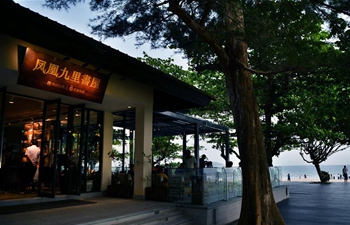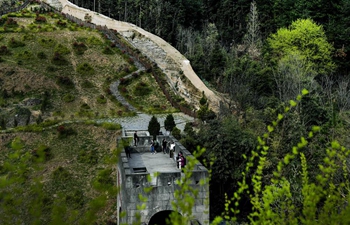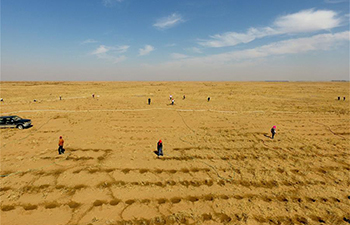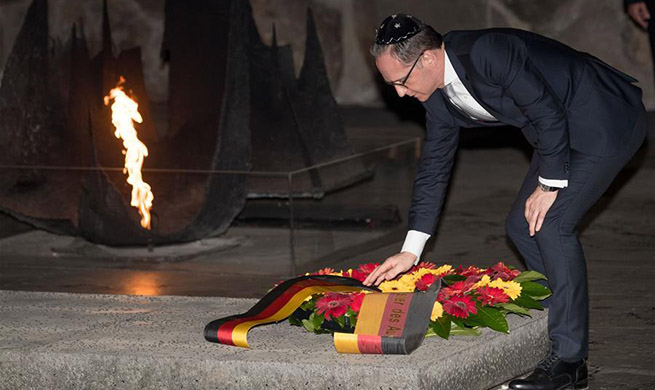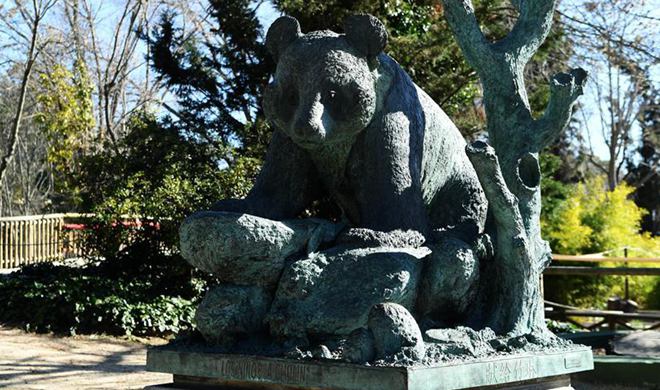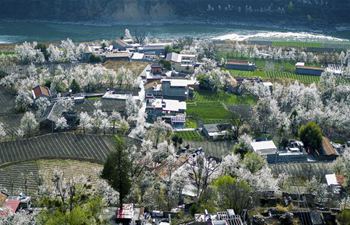JERUSALEM, March 26 (Xinhua) -- Construction in Israeli settlements in the occupied West Bank grew sharply over the past year, as U.S. President Donald Trump's administration lifted a settlement freeze, according to a report released Monday.
Peace Now, an Israeli-based settlement watchdog, said in its annual report that a total of 2,783 new housing units began construction in 2017, around 17 percent higher than the annual average number since Israeli Prime Minister Benjamin Netanyahu took office in 2009.
Some 78 percent - or 2,168 housing units - of the new construction was in settlements in isolated areas, regions that are likely to be evicted in any two-state agreement.
At least 282 of the housing units were built without Israeli permits in illegal outposts, said the watchdog group.
Under international law, all settlements are illegal. Outposts are settlements that are illegal also under Israeli law because they were constructed without permits from the Israeli authorities.
In 1996, the Netanyahu government initiated a practice of turning a blind eye to the outposts. Following domestic and international pressure, the practice was stopped in 2005, when by that time over 100 outposts had been founded, the report showed.
However, in 2011, Israeli government declared a new policy to legalize the outposts, which continues until today. "Since then, 11 outposts have been fully legalized and another 35 have started the process of legalization," the report read.
Over the past year, three new outposts were established, namely Neve Achi north of Ramallah city, Kedem Arava south of Jericho, and Shabtai's Farm south of Dahariya.
"The steady pace of construction and building deep in the West Bank attest to Prime Minister Netanyahu's steadfast abetting of the settlement enterprise," Peace Now said in a statement. "It is also apparent that the new U.S. presidency in 2017 had no marginal deterrent effect on these Israeli unilateral moves, which continue to inflict severe damage on Palestinians' way of life and on prospects for a two-state solution."
The figures were released amidst growing mistrust between the Palestinian National Authority and the Trump administration. Palestinian President Mahmoud Abbas recently slammed the United States as a biased broker in the wake of Trump's recognition of Jerusalem as the capital of Israel on December 6 last year.
Tensions were looming ahead of May 1, the scheduled date for the relocation of the U.S. embassy from Tel Aviv to Jerusalem.
Israel occupied the West Bank in the 1967 Middle East war and has kept its control over the territories despite international criticism.






